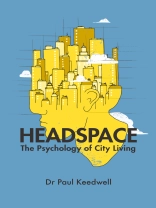More and more of us are choosing to live in the man-made environment of the city. The mismatch between this artificial world and our nature-starved souls can contribute to the stresses of city living in a way that is barely noticed – but is crucially important.
What does the science of architectural psychology tell us about how the world of brick and concrete affects how we think, feel and behave? In an increasingly crowded urban world, how does good urban architecture inspire, restore and bring us together. Conversely, how does bad architecture cause anxiety, alienation and depression?
Dr Paul Keedwell uncovers the secret psychology of the city, and how it affects our daily happiness. Starting with the home and reaching out to the street, neighbourhood and wider city landscape,
Headspace teaches us how to see our cities differently, and how we can best adapt to our rapidly changing urban world.
Circa l’autore
Dr Keedwell studied Medicine and Psychology at Leeds University and is a member of the Royal College of Psychiatrists. He has a Ph D on the neuroscience of mood disorder, with a keen interest in how evolution has shaped our emotions. He has written widely on many aspects of psychology and mental health, also appearing on national radio and television. His more artistic side has been drawn to architecture and design, which he studied part time at London Metropolitan University. This led to a dissertation on the psychological history of architecture. He has conducted a survey on emotional attachments to the home and contributed to the Channel Four TV series, The Secret Life of Buildings.












